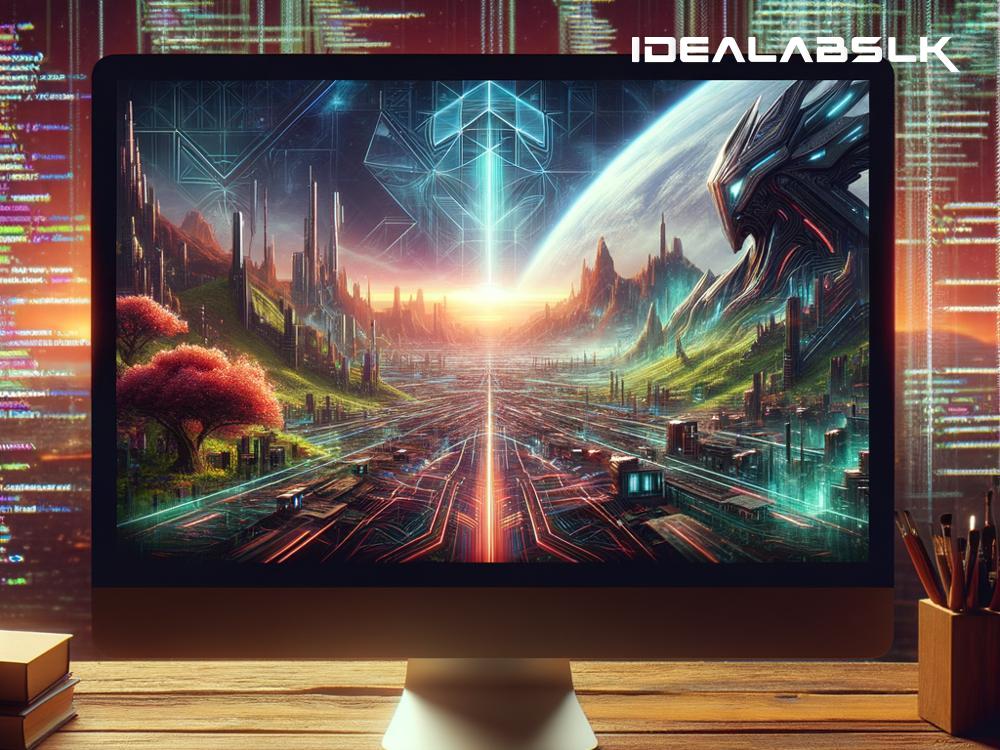AI-Generated Worlds in 2025: The Dawn of Dynamic, Evolving Game Environments
The future of gaming is morphing right before our eyes, becoming more revolutionary than ever. Imagine stepping into a game world that evolves, learns, and reacts uniquely to each player, crafting experiences that are as distinct as our fingerprints. This isn't a snippet from a sci-fi novel; it's the impending reality of gaming thanks to advances in AI and machine learning. By 2025, we're poised to witness a seismic shift in how digital worlds are created, experienced, and even perceived, courtesy of these smart technologies.
The Magic Behind AI-Generated Worlds
Think of AI-generated worlds as living, breathing entities. They're not static canvases but dynamic ecosystems that grow, evolve, and transform. Powered by artificial intelligence, these environments can create content on the fly, tailor experiences to individual player actions, and generate endless possibilities for exploration and interaction.
Machine learning forms the core of this innovation. It's a type of AI that learns and improves from experience without being explicitly programmed for specific tasks. In the context of game development, this means machine learning algorithms can analyze vast amounts of data (like player behavior patterns) and use that knowledge to create or modify game worlds in real-time.
Dynamic, Evolving Game Environments
What sets these AI-generated worlds apart is their dynamism and adaptability. Traditional game worlds, as expansive as they may be, are ultimately fixed environments. Every tree, mountain, or NPC (non-player character) you encounter is meticulously designed and placed by human developers, remaining largely unchanged.
Enter 2025, and we're looking at landscapes that reshape themselves based on our actions. Wander through a digital forest, and the paths may realign based on where you've explored, ensuring every journey is distinctly your own. NPCs might remember past interactions, evolving their attitudes and responses based on your behavior, creating a rich, personalized narrative.
The Game Changer for Developers and Players Alike
For game developers, AI-generated worlds promise a creative liberation. Instead of being bogged down by the painstaking process of crafting every detail, developers can focus on outlining broad strokes. AI takes over the heavy lifting, filling in the details and generating content that can surprise even the creators. This not only speeds up development time but also opens the door to a level of creativity and complexity previously deemed unfeasible.
Players, on the other hand, stand to gain the most. The promise of never playing the same game twice is closer than ever, with every playthrough offering a unique adventure shaped by one's choices, successes, and failures. This level of personalization and unpredictability enhances immersion, keeping games fresh and engaging over longer periods.
Challenges and Considerations
As exciting as AI-generated worlds are, they bring forth a new set of challenges. Ethical considerations, for one, are at the fore. With NPCs that learn and evolve, the line between programmed entities and entities with 'feelings' begins to blur, raising questions about digital rights and morality within virtual environments.
There's also the technical hurdle of ensuring AI-generated content maintains quality and coherence. Generating a random landscape is one thing, but creating a world that's both believable and engaging, with narratives that make sense, requires sophisticated machine learning models and significant computational resources.
The Road Ahead
By 2025, AI-generated worlds in gaming could immensely transform how we play, create, and think about games. As we stand on the brink of this new era, it’s clear that the fusion of AI and gaming will unlock unprecedented possibilities for personalized, dynamic, and endlessly captivating digital worlds.
However, leveraging the full potential of this technology will require careful navigation of ethical and technical challenges. As machine learning continues to evolve, so will our capability to craft these complex, evolving universes, heralding an age of gaming that's more immersive and personalized than ever before.
In essence, the gaming worlds of 2025 will be mirrors reflecting our choices, creativity, and desires, offering experiences that are as unique and dynamic as life itself. The journey into these AI-generated realms is poised to redefine the boundaries of digital exploration, making every adventure, battle, and story not just a game, but a journey tailor-made for the player. Welcome to the future of gaming, where the world evolves with you.

